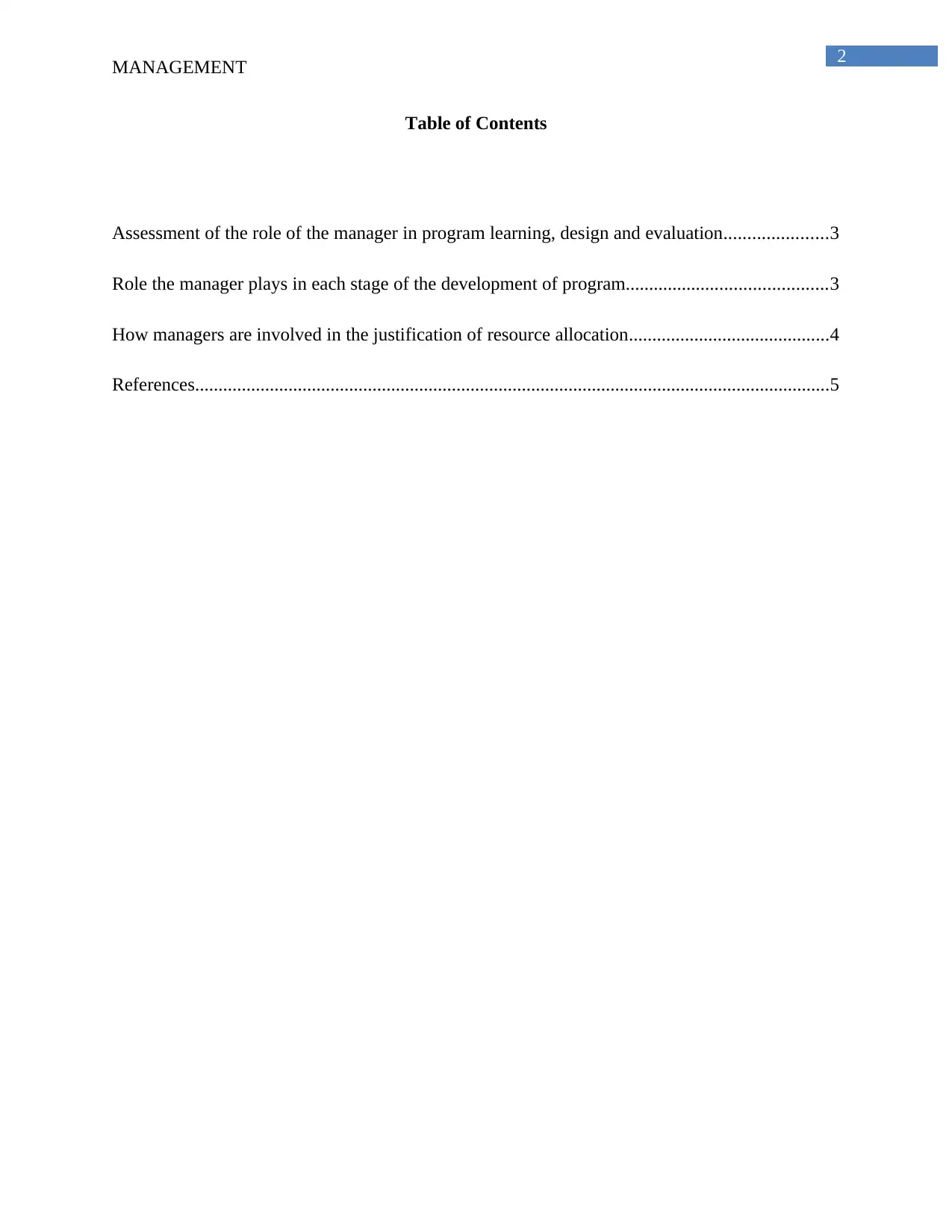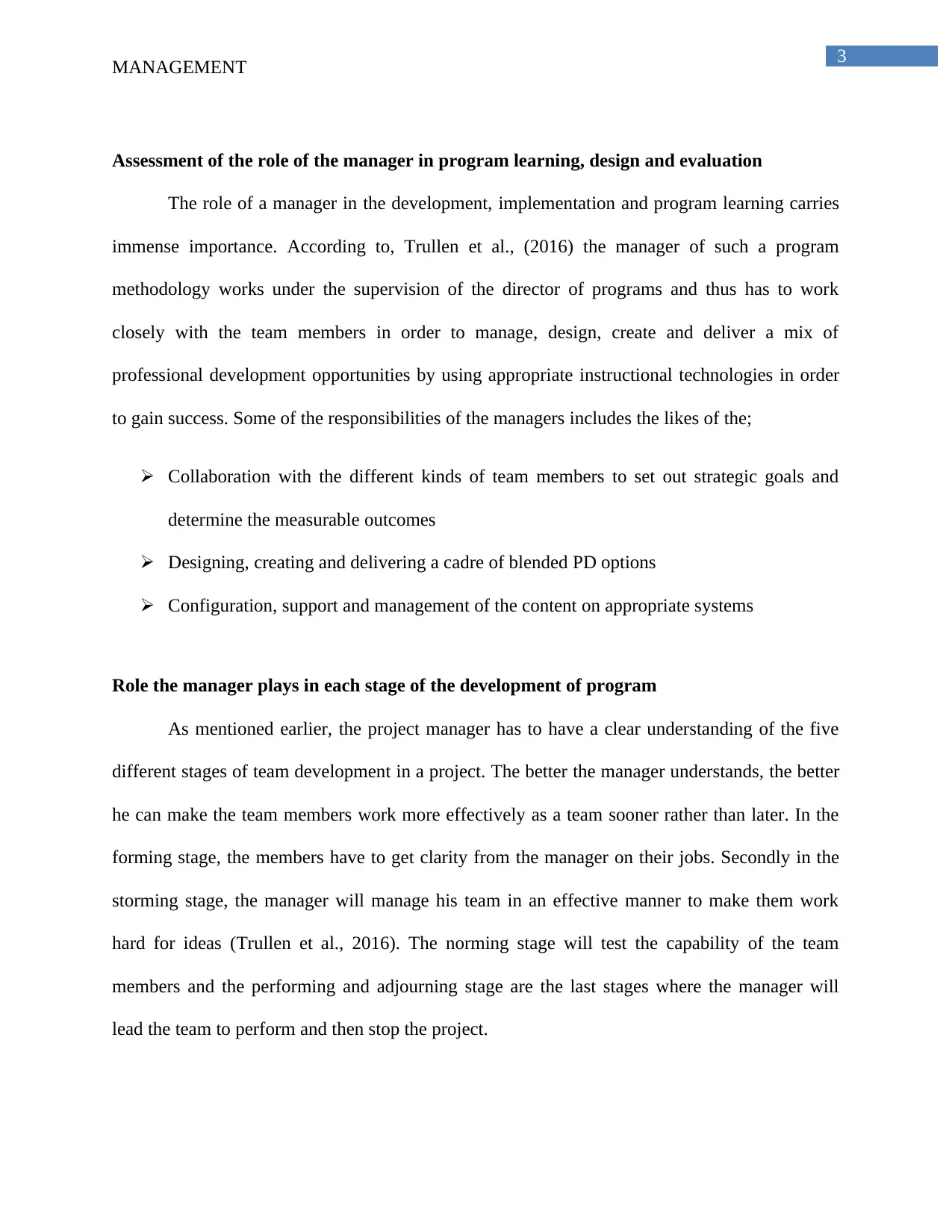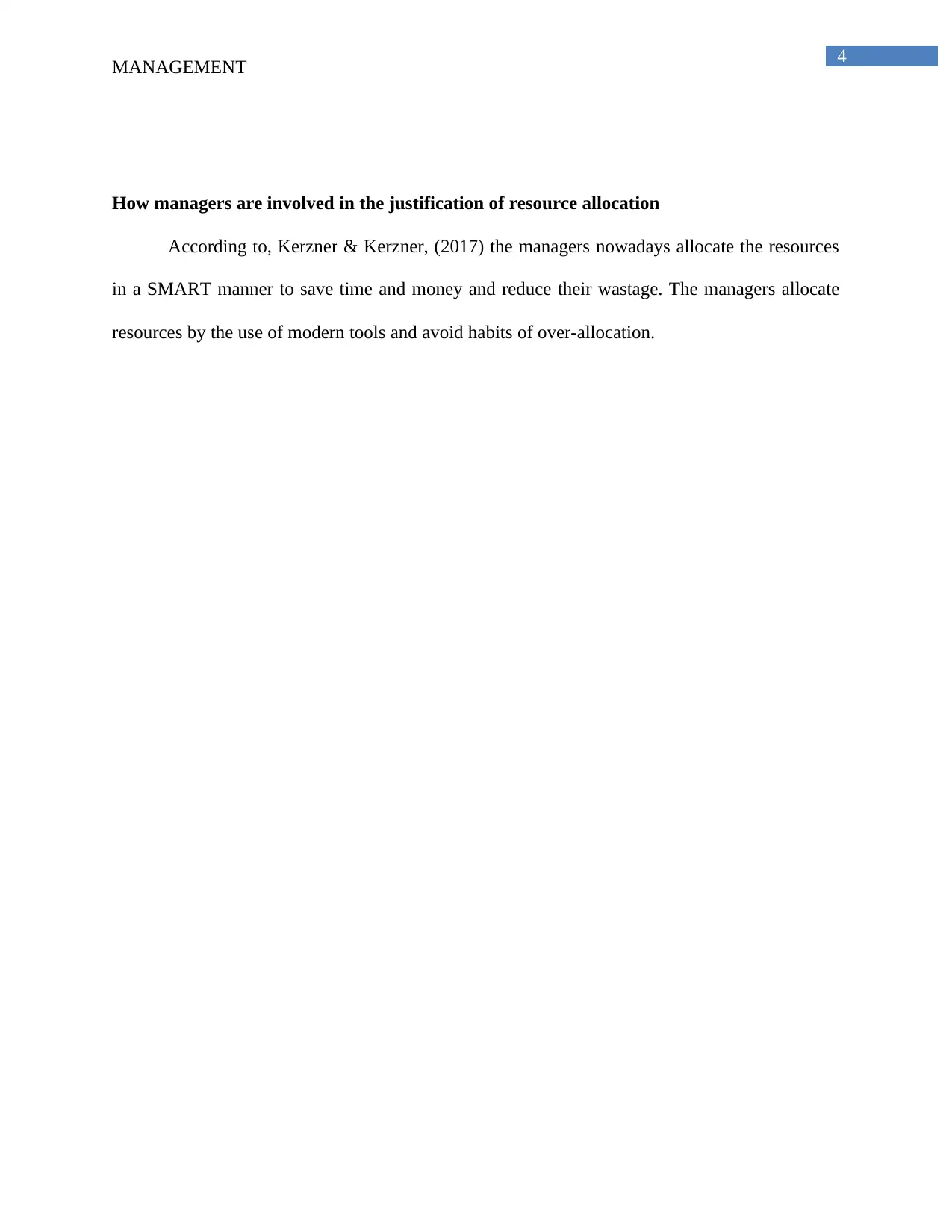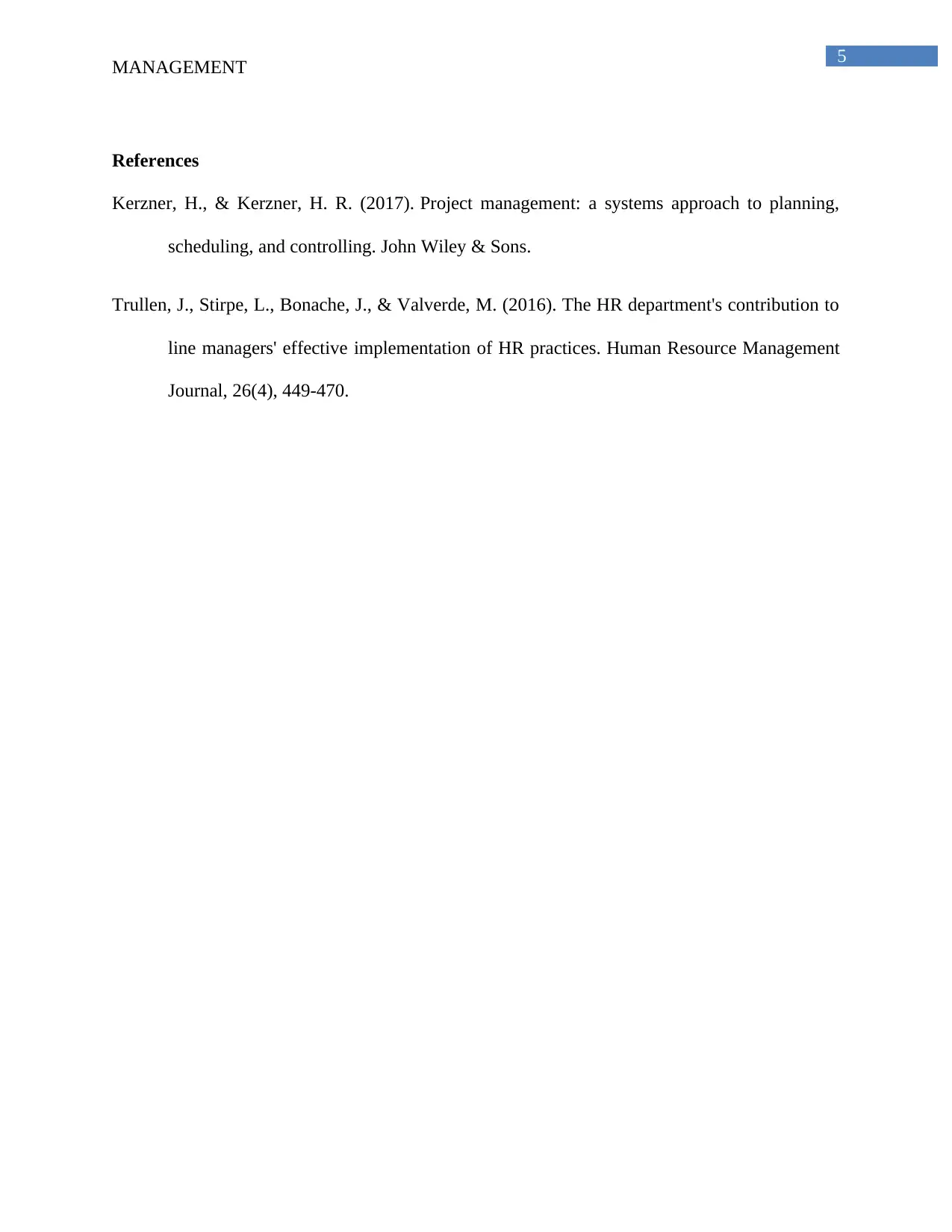Management and Program Design: Role of Manager and Resource Allocation
VerifiedAdded on 2023/04/22
|5
|509
|214
Report
AI Summary
This report delves into the critical role of a manager in program planning, design, and evaluation, emphasizing the significance of their involvement in each stage of development. The report highlights the manager's responsibilities, including collaboration with team members to set strategic goals, design blended professional development opportunities, and manage content. It explores the manager's role in team development, covering the forming, storming, norming, performing, and adjourning stages. Furthermore, the report examines how managers justify resource allocation using modern tools and avoiding over-allocation, thus ensuring efficient project management and cost-effectiveness. The content is supported by references to academic sources that provide insights into effective HR practices and project management methodologies.
1 out of 5











![[object Object]](/_next/static/media/star-bottom.7253800d.svg)